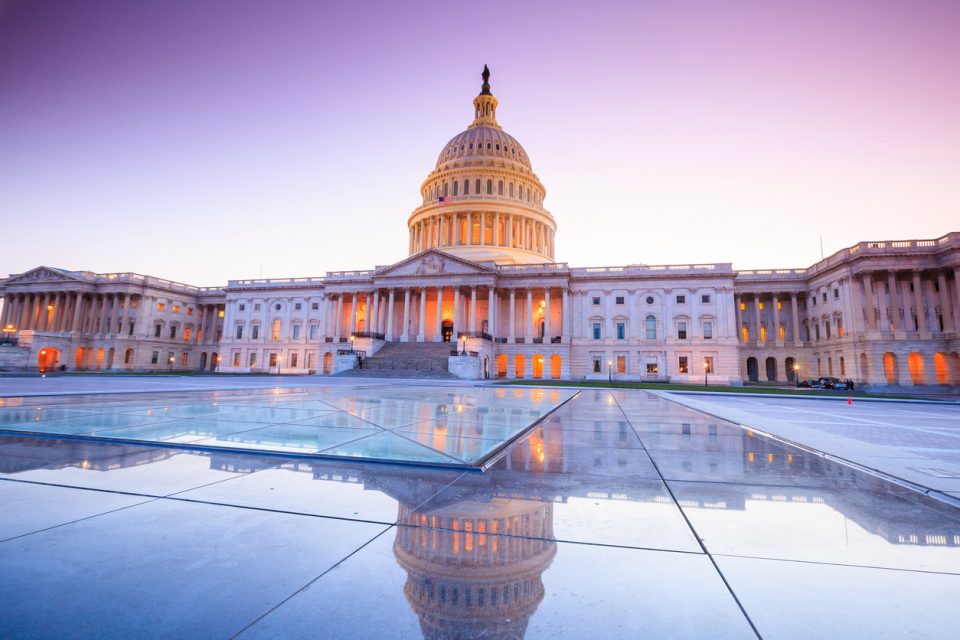The US House of Representatives Financial Services Committee (FSC) oversees the US financial services industry. It also oversees the work of the Federal Reserve, the US Department of the Treasury and the US Securities and Exchange Commission (SEC).
FSC has recently approved the Republican-designed CHOICE Act which, when it is passed by the Senate, will implement an executive order of President Donald Trump to roll back the Dodd-Frank regulation of 2010. By monitoring and preventing abusive lending practices, the Dodd-Frank regulation was intended to curtail systematic risk and constrain the excessive risk-taking of the largest, most complex, and most interconnected financial institutions, known as ‘too big to fail’, to safeguard the entire financial industry.
In response to the 2008 financial crisis, Dodd-Frank emphasised measurements to enhance financial stability, orderly liquidation, Wall Street transparency and accountability, established the Consumer Financial Protection Bureau (CFPB), an effective consumer watchdog, to supervise and enforce fair lending, and expanded the SEC ability to file administrative proceedings in SEC hearings rather than as civil suits at federal district courts. With the repeal of the Dodd-Frank regulation, the CHOICE Act would allow banks to have a regulatory relief if their leverage ratio is at least 10%. In addition, it would steer the SEC away from imposing penalties and enforcement tools on violators. Hence, violators would opt for federal court to slow down their cases.
Bankers who support the CHOICE Act do so by their view that the regulatory requirements are onerous and costly. President Trump stated his plan to dismantle the Dodd-Frank regulation, which he claims to delay lending and tie up banks in red tape. However, consumers and activist groups argue that rolling back Dodd-Frank in favour of Wall Street bankers will only make it easier for big banks to steal form consumers and get away with it.
A 2015 Forbes article suggested that Dodd-Frank handicapped small community banks and credit unions instead of empowering them in the face of too-big-to-fail behemoths. However, in an attempt to reducing costs for the banks through deregulation, US regulators should not sacrifice risk mitigation. It takes only one piece of a domino to fall to trigger a chain reaction. According to Moody’s, a decline in banks’ trading inventories has contributed to a decline in value at risk. Therefore, repealing Dodd-Frank upheaves regulatory scrutiny. The risk is ultimately borne by Americans while the benefits of riskier lending products are pocketed by Wall Street bankers.
Title II in Dodd-Frank, which organises orderly liquidations of too-big-to-fail banks. In such case, the Act increases the likelihood of disorderly resolutions at times of crisis and increases the risk of bailouts. Too-big-to-fail banks will be too-big-to-handle. The Act also rolls back the Volcker Rule in Dodd-Frank, which prevents banks from investing depositors’ money in speculative activities. Moreover, the Volcker Rule has been monitoring banks’ trading inventories and private equity and hedge fund investments since the 2008 crisis. According to Moody’s, a decline in banks’ trading inventories has contributed to a decline in value at risk. Therefore, allegations of repealing Dodd-Frank in favour of Americans in fact seem in the very best interest of Wall Street bankers.
The Act makes extreme changes to the Consumer Financial Protection Bureau (CFPB), viewed as crippling the CFPB ability to protect consumers of financial services while empowering big banks and loan sharks. Since the CFPB’s creation, it returned over $11 billion to the victims of those charged excessive overdraft fees and payday lenders. Although CFPB is popular with consumers, it is not popular with bankers on Wall Street. Therefore, the Act would shift the balance of power between the SEC and violators. The SEC will not be as powerful to threaten violators through automatic disqualification from regulated activities.
Finally, the Act repeals the requirement of having Federal stress tests, a regulatory measure to assess bank performance, and makes it every two years instead while providing exemption from enhanced regulatory supervision for banks with a Basel III leverage ratio of at least 10%. Alleviating regulatory scrutiny and allowing for loose regulatory management schemes may be a recipe for financial disaster.
The CHOICE Act has been passed for voting in the Senate, where it needs 60 votes to make it into law. This means it needs full Republican and some Democratic votes, which is impossible to secure so far. The Act looks forward to making market actors, rather than regulators, responsible for overseeing financial institutions. Market actors would then be running banks, but would have to pick up the pieces when they run banks into the ground. Repealing regulatory measures, which proved effective at times of credit crunch, is definitely not the answer.
Heba Abou-El-Sood is from the Cairo University Faculty of Commerce
Marwan Izzeldin is from the Lancaster University Management School (LUMS)

